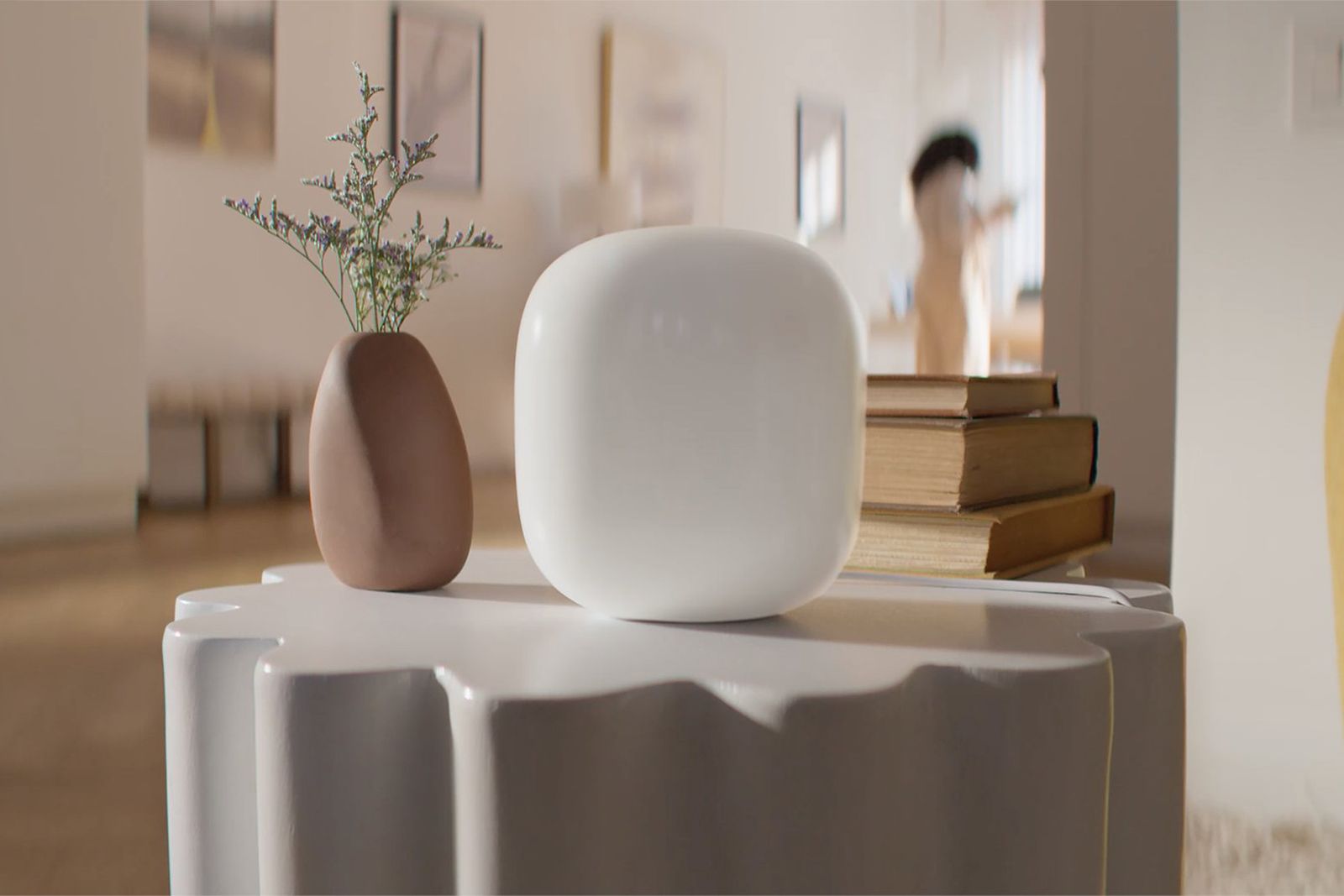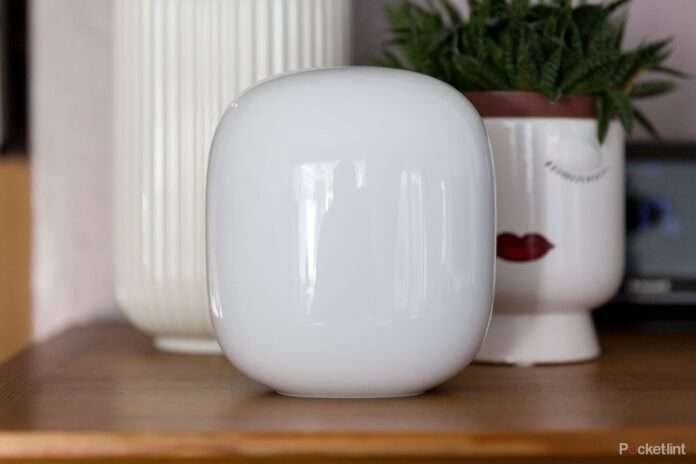Google Nest Wifi is a mesh network system. Essentially, it connects to your existing router to give you a strong Wi-Fi connection throughout your home. If you move rooms, the idea is that you seamlessly move to the next network node, without having to physically switch network.
But a mesh network system is only worth getting if you have a large home (one with several bedrooms). You may be better off just getting a more powerful router.
Mesh network gear is designed to be expandable, so you can use several of them in your home. It can also handle multiple devices, meaning you can stream in the living room and kitchen while someone games in the basement – and there should be no Wi-Fi congestion or a contest for bandwidth.
How does the Nest Wifi mesh network work?
You basically put several of these ‘nodes’ around your home which act as one single network. The primary node connects directly to your modem – usually the router your ISP provided – but you switch off the router’s own wireless coverage.
You then power up the other nodes in optimum positions around your home and set it up using the dedicated Google Home app.

Google Nest Wifi Pro
Once done, you will get a Wi-Fi signal everywhere, from your bathroom to your basement. Think of Google Nest Wifi as an expandable system for better coverage. Instead of one router, multiple routers work together to deliver a fast network throughout your home.
It essentially offers mesh network-like coverage so avoids black spots in your connectivity. And because of the way the mesh network works, it’s the routers that work out which one of them your device needs to be connected to in order to continue that seamless connectivity.
So if you’re moving upstairs, or to the back of the house, you shouldn’t experience a drop in coverage and you won’t need to manually select the secondary node in your phone’s Wi-Fi settings menu.
How many nodes do you need?
If you have a smaller home (up to 1,500 square feet), Google recommends that you start with a single Google Nest Wifi. But we say that if you’re only going to use one, you’re better off upgrading your router instead.
A mesh network comes into its own if you need much wider coverage. If you have multiple floors, it’s worth investing in at least two of them: one for the ground floor, and one for the first floor. Google offers a three-pack set that covers up to 4,500 square feet.
What else can Nest Wifi do?
Network Assist
Google Nest Wifi has a feature called Network Assist that allows it to actively manage and optimise your network behind the scenes so you don’t have to adjust settings. Like other mesh devices, it keeps the signal strength strong in every corner of your house by moving your device to the best node for less congestion and better speed.
Preferred activities
Google Nest Wifi has a preferred activities setting that allows you to customise activities on your network. The only activity option now available is Video Conferencing which works with Zoom and Google Meet. Selecting this will prioritise Zoom and Meet traffic, resulting in a smoother and clearer connection.
Previously, there was a Gaming option, designed for use with Google Stadia, but since the platform shut down, this option has been removed.
Priority device
It’s possible to select a priority device on the Nest Wifi network. This is done through the Google Home app in the Wifi icon and if you tap on “Set Priority Device” in those settings, you’ll see a list of all the devices on your Nest Wifi network, with the option to pick the device you want to prioritise.
Scheduled Pause
Google Nest Wifi also has a Scheduled Pause feature through the Family Wi-Fi setup, which lets you pause the internet in your house. You can automatically disrupt the Wi-Fi for everyday events like bedtime or homework. You can also pause Wi-Fi in the moment through the Google Home app or Google Assistant.
Guest Network
Google Nest Wifi lets you create a separate Guest Network for your guests and easily share the password. Once set up – which you do through the Google Home app – guests on the Guest Network will only have access to the devices that you select.
Post Disclaimer
The information provided in our posts or blogs are for educational and informative purposes only. We do not guarantee the accuracy, completeness or suitability of the information. We do not provide financial or investment advice. Readers should always seek professional advice before making any financial or investment decisions based on the information provided in our content. We will not be held responsible for any losses, damages or consequences that may arise from relying on the information provided in our content.



